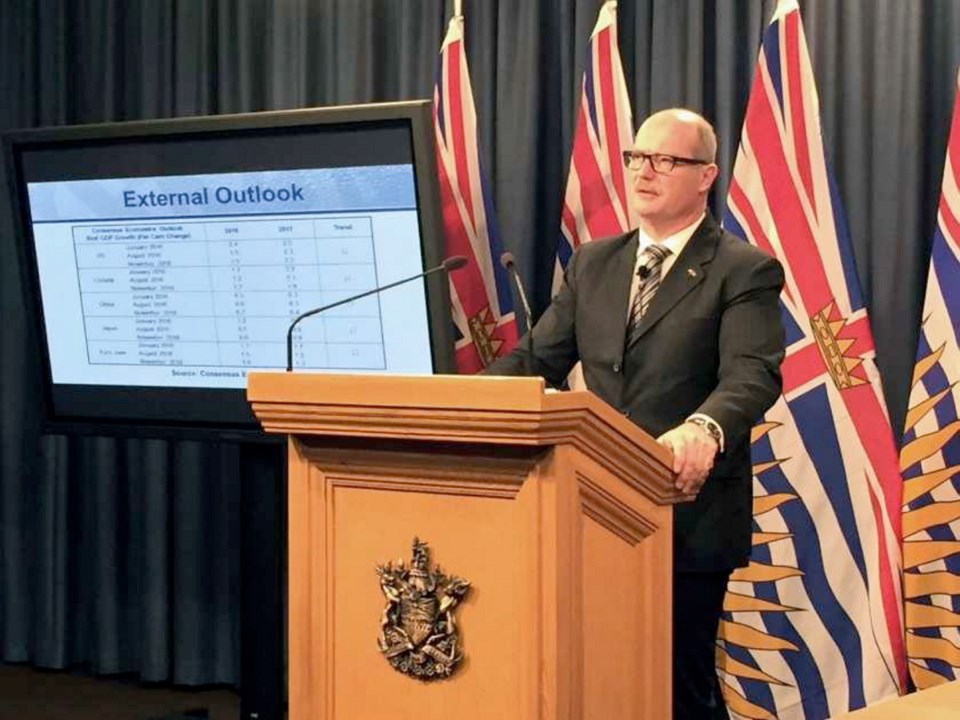B.C. is projecting a larger-than-expected budget surplus this year, despite the cooling of revenues from real estate sales.
The government’s surplus for the fiscal year ending March 31, 2017 is on track to hit $2.24 billion, an increase of $301 million since the last quarterly financial update, mainly due to higher personal and corporate income tax.
The surplus is projected to be far higher than the $264 million first estimated in the February 2016 provincial budget.
The financial figures show a lessening of the financial windfall the government has seen from a booming real estate sector. The property transfer tax revenue projection has decreased by $204 million since the first quarter, when it jumped almost $1 billion higher than budgeted due to a flurry of real estate sales and rising prices.
The decline appears partly a result of the government’s 15% foreign buyer tax, implemented in August, which figures show at first dramatically curtailed real estate deals but has since slowly recovered. Initial estimates that the foreign buyer tax would generate $165 million this year in extra revenue were downgraded Tuesday to $50 million to reflect the decline in sales.
On the whole, the government still expects revenues from the property transfer tax of almost $2 billion this year.
The updated financial figures Tuesday did not contain an additional money for a settlement with B.C.’s teachers, following their win at the Supreme Court of Canada this month that restores unlawfully stripped contract language on class size and composition from 2002.
B.C. Finance Minister Mike De Jong said there’s enough money in the surplus, contingency and forecast allowances to afford a settlement with teachers, but he’s not going to put an estimated figure on that because it would unfairly preclude good faith negotiations the government intends to hold with teachers.
“Yes it is going to involve the expenditure of additional monies, but as the court pointed out that is to be the product of a negotiation, a discussion that is now underway happily,” he said.
“It would be presumptive on my part and government’s part to lay out our figure or unilaterally state what we believe that figure will be. The fiscal plan is healthy and we are in a position to accommodate the results of the negotiation now underway.”
The estimate range of cost to settle the court case has ranged from $250 million to $1 billion, annually.
De Jong said the province’s strong economic growth of 3.3 per cent in 2015 has also resulted in a small pay raise of 0.35 per cent for unionized workers, based on collective agreements that offer increased wages if the economy outperforms budget forecasts. Combined with a similar increase last year, it means a registered nurse earning $83,000 a year would see a $665 increase, or a teacher earning $78,000 would see $624 more.



